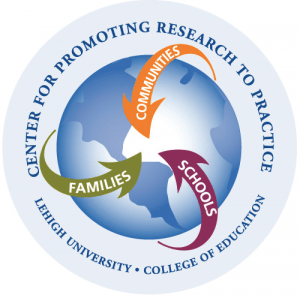Read it Again-PreK!
Developed through the Crane Center for Early Childhood Research
at The Ohio State University
What is the Intervention?
Read It Again-PreK is an evidence-based curricular supplement that focuses on preschool children’s language and literacy skills. Read It Again- PreK is organized around read-alouds of high quality story books.
Specifically, Read It Again-PreK provides 60 soft-scripted read-aloud lessons that are delivered over 30 weeks (that is, 2 lessons per week). Read It Again-PreK lessons incorporate repeated reading of 15 engaging and easily accessible storybooks to focus on four domains of language and literacy development: (a) vocabulary, (b) phonological awareness, (c) print knowledge, and (d) narrative. Guidance is provided to differentiate instruction based on children’s skills.
Who is it for?
Teachers and other professionals working with preschool children. It may also be adapted to provide parents with helpful guidance in reading aloud with their young children.
Purpose
Read It Again – PreK is a supplement to everyday instruction designed to develop and strengthen early language and literacy skills in young children.
Background Information
Research shows that literacy development is occurring in preschoolers and we know the following:
- Young children develop important precursors to reading and writing.
- There are individual differences in the literacy development of preschoolers that are meaningful.
- A young child’s experience plays an important role along the path of literacy development.
Children with primary speech-language impairment or a general developmental delay typically show substantial lags in their attainment of early literacy skills in preschool and are likely to develop reading disabilities by the later elementary grades.
Read alouds by parents and teachers support children’s language and literacy skills.
- Repeated reading provides opportunities for children to hear the book more than once
- Children are active participants during read alouds when they answer questions or retell a story.
- Teachers provide short definitions for some words when reading which helps children develop vocabulary.
Research shows that there are two important areas of development that are highly related to young children’s success in learning to read and later reading proficiency:
- Language skills that build a bridge between listening and reading as well as speaking and writing.
- Emergent Literacy Skills provide precursor skills so that children learn to use print as a meaningful communication system
Materials Needed
Read It Again-PreK! is free and available for download. The curriculum supplement, lesson plans and materials can be accessed through this link.
https://earlychildhood.ehe.osu.edu/research/practice/read-it-again-prek/
Steps of Intervention
- Download the curriculum supplement, lesson plans, lesson materials, implementation and progress notes from the above website
- Obtain story books listed in the curriculum supplement that correspond to the lesson plans.
- Each week, conduct the prescribed lessons.

